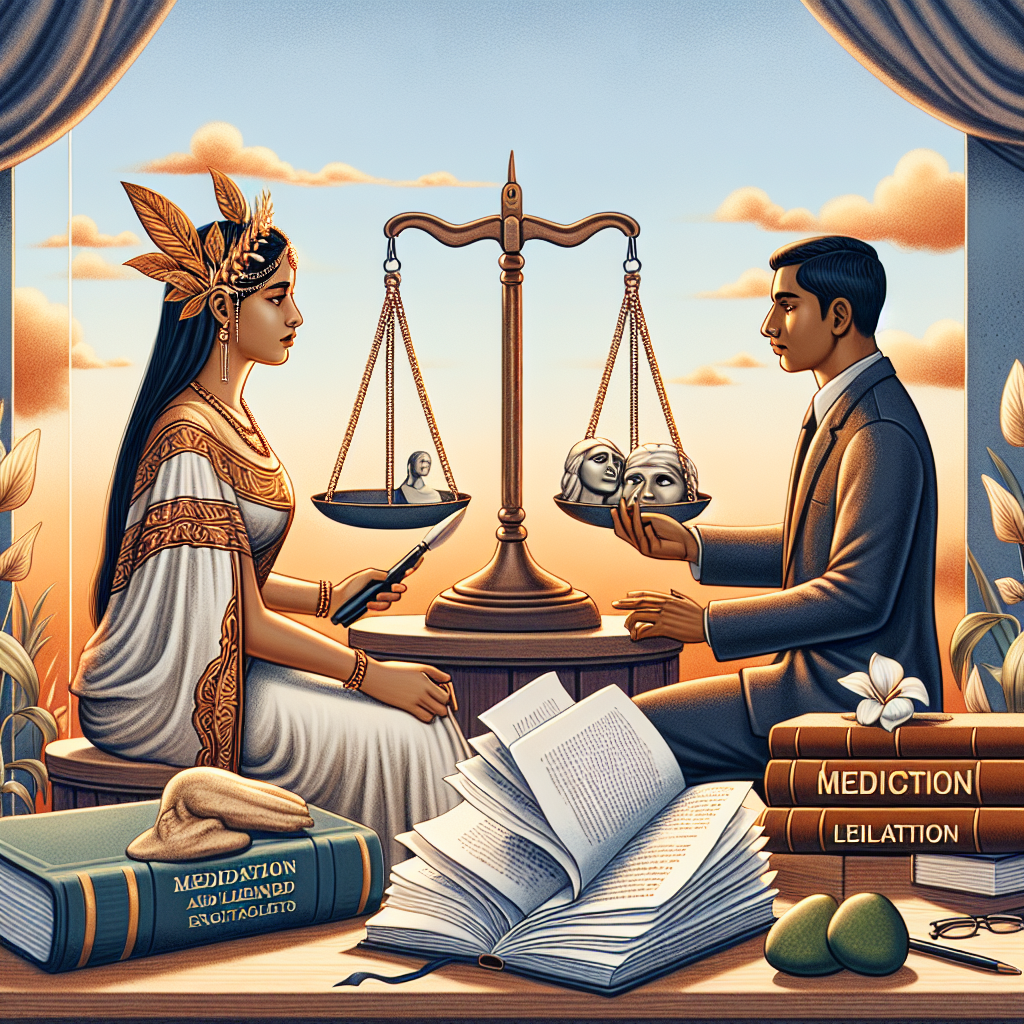In our daily lives, conflicts can arise in numerous forms, from minor disagreements between neighbors to more complex legal disputes involving businesses or family matters. Understanding how to seek justice in these situations is crucial, and two common avenues for resolution are mediation and litigation. In this article, we’ll explore both methods, helping you choose the right path for your unique circumstances.
What is Mediation?
Mediation is a voluntary process where a neutral third party, known as a mediator, helps disputing parties communicate and negotiate a resolution. The main goal is to facilitate dialogue and reach a mutually beneficial agreement without the need for a formal court proceeding.
Benefits of Mediation
-
Cost-Effective: Mediation is often significantly less expensive than litigation. You save on legal fees and court costs, making it an attractive option for those with financial concerns.
-
Time-Saving: Unlike litigation, which can drag on for months or even years, mediation typically resolves disputes quicker. This prompt resolution can be particularly beneficial for strained relationships, allowing parties to move forward without prolonged conflict.
-
Confidentiality: Mediation sessions are private, meaning that discussions and agreements are not publicly disclosed. This confidentiality helps maintain the parties’ dignity and privacy during the conflict resolution process.
- Control and Flexibility: Participants in mediation retain control over the outcome as they collaboratively decide the agreement. This flexibility fosters creativity in problem-solving, leading to solutions that may not be available through litigation.
When to Choose Mediation
Mediation is an excellent choice for family disputes, neighbor conflicts, workplace disagreements, and small business issues. If both parties are willing to communicate and compromise, mediation can pave the way for a successful resolution.
Understanding Litigation
Litigation refers to the process of resolving disputes through the court system. It involves filing a lawsuit where a judge or jury makes a final decision regarding the case.
Advantages of Litigation
-
Enforceability: Court judgments are legally binding, providing a clear framework for enforcement. If one party fails to comply with the agreement reached in mediation, litigation may offer more robust remedies.
-
Precedent and Clarity: Court rulings can set legal precedents. For larger or more complicated issues, having a definitive ruling may lead to clearer rules or standards moving forward.
- Right to Appeal: If you disagree with a ruling, litigation allows for an appeals process where the decision can be reviewed by a higher court. This helps ensure that justice is served properly.
When to Choose Litigation
Litigation is generally advisable for complex legal issues, such as serious criminal charges or cases involving significant financial stakes. If the other party is not a willing participant in the compromise or mediation process, litigation may be the only option to ensure a resolution.
Choosing the Right Path: Mediation vs. Litigation
To determine whether mediation or litigation is the right choice for you, consider these factors:
-
Nature of the Dispute: If the conflict is personal and involves emotional investment (like family matters), mediation may be more effective. For serious legal disputes or when a precedent needs to be established, litigation might be better.
-
Willingness to Compromise: Are both parties open to finding a middle ground? Mediation relies on cooperation, while litigation often creates adversarial relationships.
- Time and Financial Resources: Consider your budget and timeline. If you need a quick resolution or are concerned about costs, mediation could be preferable.
The Role of Legal Representation
While some individuals choose to navigate mediation or litigation alone, having legal representation can simplify the complex processes involved. Lawyers can offer valuable advice, represent your interests, and help you prepare for what lies ahead.
Finding the Right Legal Help
When seeking a lawyer, look for someone with experience in the particular area of conflict you’re facing, whether it’s family law, contract disputes, or personal injury. Schedule consultations to discuss your situation and gauge which attorney feels like the right fit for your needs.
Conclusion: Empowering Yourself to Seek Justice
Understanding the differences between mediation and litigation empowers you to make informed decisions when conflicts arise in your life. Whether you opt for the collaborative approach of mediation or the structured environment of litigation, seeking justice is your right. Remember, it’s not just about winning; it’s about finding a resolution that allows you to move forward positively.
By knowing your options and understanding the processes involved, you can face everyday conflicts with confidence and clarity. Choose the path that best suits your circumstances, and take the first step toward achieving justice.


